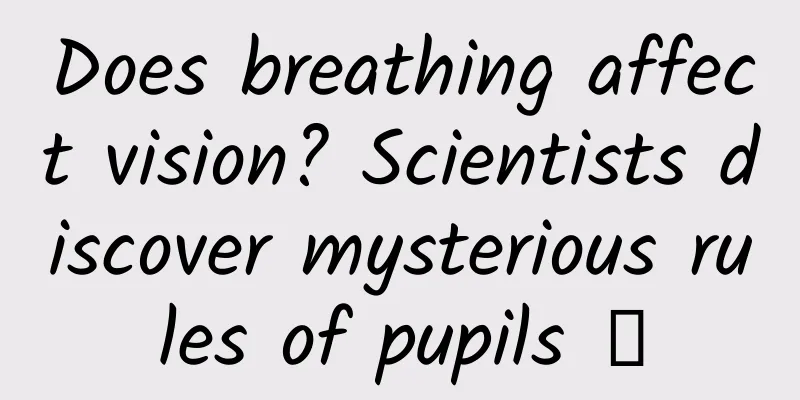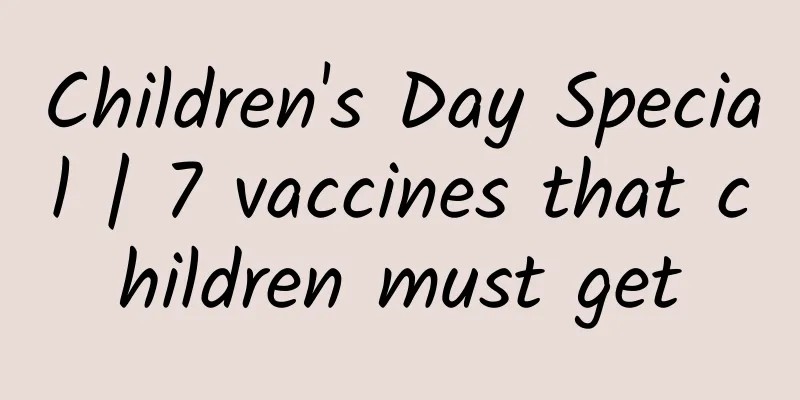Does breathing affect vision? Scientists discover mysterious rules of pupils →

|
Compiled by: Gong Zixin Like the aperture of a camera, the pupil controls the amount of light that enters the eye. As such, it is crucial to our vision and how we perceive our surroundings. For more than a century, three mechanisms have been known to change pupil size - the amount of light, focus, and cognitive factors such as emotions or mental activity. Now, scientists at the Karolinska Institute in Sweden have discovered a fourth - breathing. The study, published in the Journal of Physiology, shows that pupils are smallest when we breathe in and largest when we breathe out - which could affect how we see. "What's unique about this mechanism is that it's cyclical, always present, and doesn't require external stimulation," explains study leader Artin Arshamian, associate professor at the Department of Clinical Neuroscience at Karolinska Institutet. "Since breathing can affect brain activity and cognitive function, this finding may help to better understand how our vision and attention are regulated." The researchers conducted five experiments on more than 200 participants, systematically investigating how pupil size changes throughout the respiratory cycle while varying the task, lighting, gaze distance, and brain area involved. The findings consistently showed that pupils were smallest during inspiration and largest during expiration. This pattern held across conditions: regardless of whether participants breathed fast or slow, breathed through their nose or mouth, in bright or dim lighting conditions, focused near or far, at rest or during visual tasks, and with or without the olfactory bulb, a brain structure activated by nasal breathing. This effect is called the pupillary respiratory phase response (PRP response). Pupillary responses during the respiratory cycle in 5 experiments The difference in pupil size between inhaling and exhaling is large enough to theoretically affect vision. The researchers are currently exploring this further. Previous studies have shown that smaller pupils make it easier to see details, while larger pupils help us find hard-to-see objects. "The results suggest that within a single breathing cycle, vision may switch between optimizing the recognition of small details during inhalation and detecting faint objects during exhalation," said Martin Schaefer, the study's first author and a postdoctoral researcher at the Karolinska Institute. The researchers say the findings may also have clinical applications. "One potential application is to develop new ways to diagnose or treat neurological diseases, such as Parkinson's disease, in which impaired pupil function is an early sign of Parkinson's disease. This is a direction we want to explore in the future," said Artin Arshamian. |
>>: Silver Age Science | What are the danger signs of dementia? How to prevent it?
Recommend
What should I do if my breasts are not developed at the age of 20?
When a little girl is about 12 years old, her bre...
Women's vagina automatically shrinks
Love between men and women is human nature, and h...
What is the cause of excessive vaginal discharge and lower back pain?
In today's life, women are under great work p...
Picture of IUD on arm
Nowadays, there are many methods of contraception...
What happens if protein is deposited in the alveoli? How to treat it?
Author: Fang Baomin, Chief Physician, Beijing Hos...
What to do if your child stutters
Stuttering, commonly known as stammering, is a ty...
Can women still have children after treating ectopic pregnancy?
Ectopic pregnancy is very dangerous. If the patie...
Nipple protrusion is a sign of pregnancy
Pregnancy is a happy thing. Many expectant mother...
Maternal mortality rate of placenta previa
During pregnancy, if it is diagnosed with placent...
Brown on the sixth day after abortion
There are always some unexpected things happening...
How to satisfy my husband when I'm pregnant?
Compared with men, women's sexual needs durin...
What kind of whole grains should pregnant women eat if they have high blood sugar
It is more dangerous for pregnant women to have h...
How long does it take for a pregnant woman to give birth from the time her water breaks?
Most women will experience symptoms when giving b...
What medicine should I buy for itchy lower body?
Many women have such a "bad habit": whe...
7 reasons for abdominal pain you need to know
Abdominal pain refers to lesions of organs inside...









